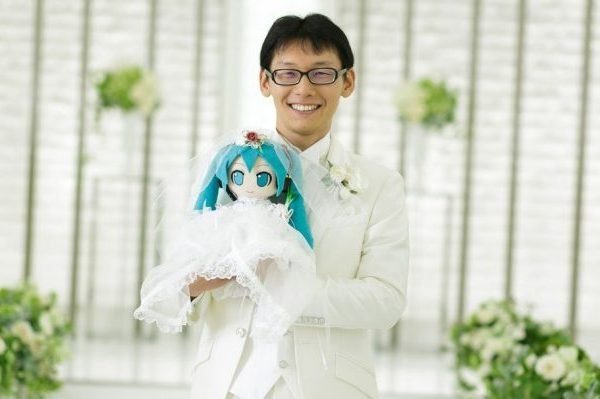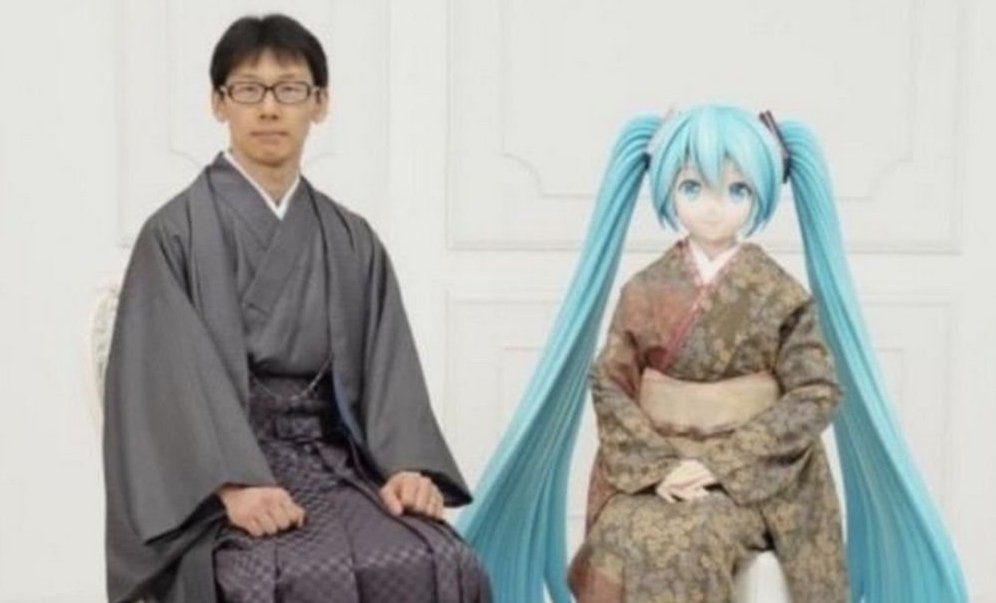J-Pop's Game Changer: Miku Hatsune and Idol Obsession

In 2009, J-Pop star Hatsune Miku had her first live concert at the Saitama Super Arena. In the midst of crowds screaming her name, clad in merch bearing her image, and fueled by an obsession appropriate for an idol of nationwide renown, the adoration directed towards her is different, for a crucial reason. Miku Hatsune isn’t real…at least in a biological sense.
She’s a digital Japanese idol part of the Piapro character lineup, created as a tool to promote Crypton Future Media’s “commercial singing synthesis software” known as Vocaloid, which is used to make Hatsune’s voice. Hatsune’s singing replicates and simultaneously exceeds the capabilities of a human, creating an uncanny synthetic tone, a Frankenstein’s monster-like amalgamation of snippets taken from the real speech of voice actress Saki Fujita. Aside from the concern some audiences feel about the near-worship of an artificial being by thousands of fans, Miku’s skyrocketing popularity raises other questions: how has she changed the J-Pop Idol industry, and is it for the worse or the better?
Miku Hatsune and Saki Fujita, the voice actress used to make Hatsune’s vocal software
Miku and other digital idols part of “Piapro” lineup of vocal softwares by Crypton Future Media
By 2014, Miku Hatsune [whose name means “first sound of the future” in Japanese] climbed even higher heights to fame, and became the opening act for Lady Gaga on her ‘Artpop’ world tour, later in 2020 she was announced as a performer at Coachella. Clearly her appeal isn’t limited to Japan, where an appreciation for the robotic is mainstream and cyborg-like beings earn admiration for their achievement of precision rather than fear.
Originally created as a marketing device for the Vocaloid software, Hatsune’s popularity has evolved making her a celebrity in her own right. It could be argued that by being a computerised J-pop idol who has been designed and programmed to perfection, she caricatures Japan’s highly manufactured human idol industry and unrealistic feminine beauty expectations. However, her popularity could, in part, be accounted for by her potential for controllability, and the desire that this generates through the gaze of her fans.
Miku dancing in 2019, live in concert in front of thousands of fans
As observed by looking at audience of a Hatsune concert, a majority of her fanbase is clearly men. With this presumption in mind, we can analyse her appearance to grasp how she is designed to generate desire in male fans, although she is clearly not human.
Hatsune is slim with pale skin, with elongated thin legs qualities which are often considered the baseline of the Japanese female beauty standard. Furthermore, while Hatsune has all the outward features of a human – wide doe eyes, short upturned nose, a smirking mouth, and so on – she has the numbers ‘01’ written on her forearm [representative of her codename CVO1], and square hair ties that defy gravity, floating around her turquoise, ankle-length hair, styled into pigtails. The fact that these features would be unlikely, or even impossible for a regular idol to possess emphasises her inhumanness, despite the fact that her features are a part of a modern Japanese beauty standards- taken to their utmost extreme. She is human-like, but will never be human.
A promotional illustration for Miku’s live concert series
When exploring the lyrics of “World Is Mine”, one of Hatsune’s most recognised and performed hits, an insight can be gained into the element of control that makes her so appealing to fans. The song begins with the words: “I’m the #1 princess in the world / And that’s how you’ll treat me, got it?” This opening declaration seems to imply that Hatsune is acknowledging her potential superiority over any other idol, due to her ability to sing in greater ranges and dance with a consistency unachievable by human idols. Her expectation to be treated as such suggests that she controls her fans by bewitching them with her flawless performance. In return, they must hold her in high regard. This control that she claims to have over her fans, however, is arguably non-existent. It could be alleged that she is the one being entirely controlled by Crypton Future Media and fans alike. As a digitised entity, she has no true agency.
A fan made video of “World is Mine”. one of Miku’s most famous songs
As the song reaches its conclusion, Hatsune sings: “You’d better keep your eyes on me/ Out of nowhere, you pull me from behind/ “What are you… Huh?”/ “Look out, you almost got run over!”/ You say as you turn away/ Maybe it’s you I should be looking out for.” Here, she describes a hypothetical scenario in which her life is in the hands of her fans.
Much like in reality, it is up to Hatsune’s creators and fans to keep her animated body and computerised voice alive by using her Vocaloid program. These lyrics reinforce a fantasy of power in the eyes of fans, who are encouraged to imagine themselves as her saviour. According to some sources Tsunku, the mega producer of idol group Morning Musume, claims that the ideal idol candidates must be “obedient” rather than musically talented.
Morning Musume, one of J-Pop’s most famous idol groups
Many of the lyrics in Miku’s songs highlight the fact that she fulfils this desired requirement to the highest degree, more than any human ever could. She has no choice but to be pliable because she has been designed as such, she has no free will, able to cater to her hungry fans every need. To an even greater extent than human J-pop idols, Hatsune is controlled by her makers, which therefore incites desire in fans who revel in their ability to control her. While a human J-pop idol is “obedient”, she may still have the agency as an individual to reject the fan. Meanwhile, Hatsune can never reject the fan, as she has simply not been programmed to do so.
While this may seem like a shortcoming, it is, in fact, an advantage for control obsessed fans and Miku’s software developers. Philosophers such as Susan Bordo make the very justificable claim women are forced to live in “the pursuit of an ever-changing, homogenising, elusive ideal of femininity”. Human J-pop idols are certainly held to these unfeasible standards. Other critics state male fans of such idols require “an infantilised cuteness coupled at the same time with a kind of sexualised femininity [which] can only be achieved through the manipulation of digital texts”. Hatsune, therefore, is one of the few idols capable of achieving these expectations by being precisely constructed for that purpose. Her cyborg qualities heighten her desirability by serving as a reminder of her separation from human idols and hence her ability to reach perfection in the eyes of the patriarchy and her fans.
One of many fan-made illustrations of Miku showing her in “sexy” poses
One example of how Miku’s popularity may have unsettling implications for the way fans view idols, and even how men perceive women in Japanese society is an incident occurring in 2018. Hatsune, although a fictional entity, allegedly was married by super-fan Kondo Akihiko. Kondo, who claims to have had a relationship with Hatsune for over ten years, wed her in an unofficial wedding ceremony in Tokyo. While this marriage is legally unofficial, there is nothing to say that Hatsune and Kondo are not romantically involved, as she is unable to state otherwise. While an example in the extreme, Kondo’s relationship with Hatsune can be used as a hyperbolic representation of the views held by many of Hatsune’s fans.
When comparing Kondo and Hatsune’s marriage with relationships between human J-pop idols and their fans, we can look to already existing rules for human idols imposed by their managing companies. Some critics claim the concept of “positive controllability comes from the unique business model of [Japanese] pop idol groups.” Specifically, fans’ votes and voices are determinant factors when companies decide which trainees should make debuts and become idols and which ones are kicked out. Thus, idols are constantly on the lookout to avoid displeasing their fans, lest they be voted out of their band. This control extends to the way idol management companies regulate the romantic lives of their talents, enacting rules such as dating bans to maintain an image of purity in idols and encourage the fantasy of romantic potential with fans.
Members of AKB48, an idol group based in Akihabara with a constantly rotating lineup
In a notable case, Minegishi Minami, a member of J-Pop girl group AKB48, famously shaved her head and tearfully apologised publicly to fans after breaking her management firm’s rules by spending a night with her boyfriend although she is a grown consenting woman. This makes clear that idol management encourages fans to harbour a sense of ownership over their favourite idols. This is taken even further in the case of Hatsune, who can conceivably be dated by any fan who wishes to do so, due to her lack of agency as a digital character that anyone can own upon purchasing her Vocaloid software.
Miku Hatsune is part of an ever growing wave of fictional beings, amassing huge amounts of lust and desire for thousands of fans, people who could be called “fictosexuals” or people attracted to fictional characters. In an article discussing ‘fictosexuality’,The Guardian raises a relevant point: “What's better: a real-life partner, with all their imperfections and character flaws” or a perfect empty vessel that you can fill with all your most idealistic desires? This lines up with Kondo [Miku’s alleged husband’s] views: “Life with Miku he argues, has advantages over being with a human partner” She’s always there for him, she’ll never betray him. These direct comparisons between being in a relationship with a human or a fictional character highlight the romantic, and sometimes sexual gratification brought about by the ultimate ownership over another, as well as the ability to project any level of desire or fantasy onto the subject.
Some thinkers conversely believe, the way in which the digital idol transcends the limited relationship that exists between the female human idols and male fans may be a positive thing, as it “might reduce the direct exploitation towards female human bodies by male producers and devoted fans”. Minegishi’s dating scandal occurred in 2013, the same year that between 1,000 and 1,500 videos tagged with Hatsune’s name were being uploaded onto video streaming site Nico Nico Douga each month. Instances as Minegishi’s controversy suggest the pliability of digital idols such as Hatsune may, indirectly, increase the expectation for human idols to fulfil the increasingly controlling desires of fans or possibly free human idols from having to provide such a high level of control to their management or fans.
While it can be speculated that Hatsune’s popularity in Japan has partially come about due to the fact that not only her voice can be manipulated via her Vocaloid program, but also her personality, her actions, and her relationships. Her mouth is used not to speak, but only to sing the words placed there by producers and fans.
Therefore, her fans may project their fantasies onto her, manipulating her for their pleasure. Hatsune acts as an exaggerated version of the ultra-manufactured human J-pop idols who came before her. Yet, it is clear that Hatsune’s beauty, singing abilities and controllable nature reach levels unachievable by these human idols. However, instead of relieving human idols of the pressure to reach unattainable standards of perfection, Hatsune perpetuates and complicates these standards- maybe putting even greater pressure on human women to achieve them than ever before.
Words by Delilah Calodoucas is a film and literature student from London, based in Bristol. With a passion for Japanese art, music and fashion, she is on a constant search to discover niche subcultures to write about. She is a lifetime fan of Studio Ghibli and psychological thriller anime cult classics, with aspirations to become a Gothic Lolita.
Edited by Ora Margolis











![Pretty On The Inside [And Outside]- Tokyo's Favorite Makeup Artist Kanako](https://images.squarespace-cdn.com/content/v1/57825361440243db4a4b7830/1688961963459-L1KHFZU2K64TNNKTREVG/Kanako+Cover+image.png)